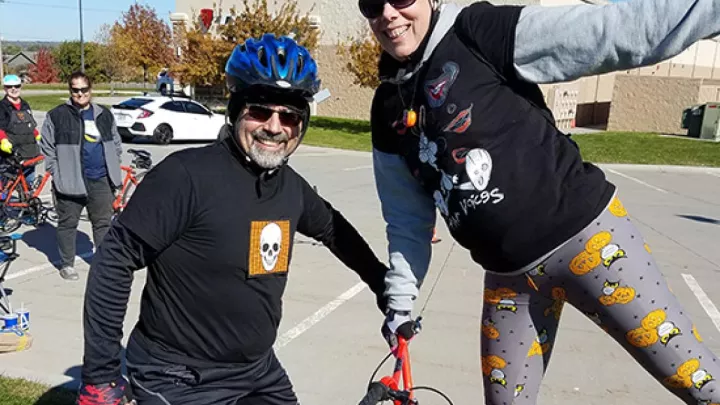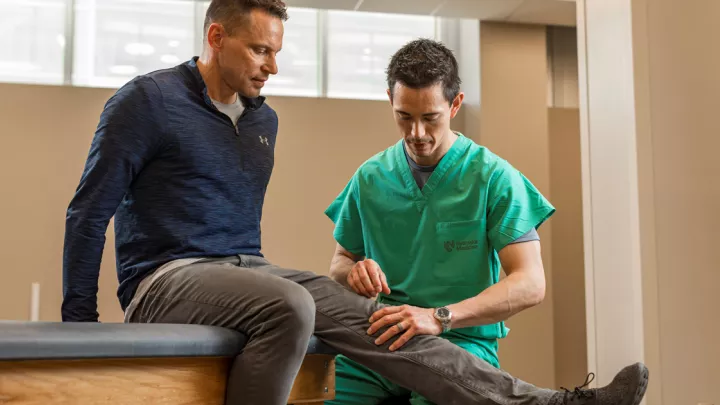6 signs of a torn meniscus

The meniscus is a C-shaped disc in the knee that acts as a shock absorber, provides stability and helps your knee move well. While small, it is a critical part of the health and longevity of your knee.
Athletes are at an increased risk for meniscus injuries, but any activity that causes you to twist or rotate your knee forcefully can cause a meniscus tear. These tears can sometimes occur from tissue degeneration without a specific injury.
Below, Matthew Tao, MD, board-certified orthopaedic surgeon and sports medicine specialist, discusses common symptoms of a torn meniscus and when to seek medical care.
Torn meniscus symptoms
If you have a torn meniscus, you may develop the following signs and symptoms:
- Pain, especially when twisting or rotating your knee
- Mechanical sensation inside the knee, potentially even getting stuck in one position
- A crackle or popping sensation in your knee
- Lack of confidence or sense the knee wants to give out on you
“The most common issue for people with a meniscus tear is pain,” says Dr. Tao. “But it often becomes a lifestyle issue, and the symptoms can begin to limit your ability to be active. It typically bothers people the more they use the knee, particularly with activities like running, jumping or things that involve a change in direction.”
When is a torn meniscus a problem
One of the problems with meniscus tears is that they typically do not heal well on their own due to a poor blood supply. This is one of the things that makes the meniscus susceptible to injury in the first place. But once that happens, it is often an ongoing problem.
If left untreated, a torn meniscus can put you at increased risk for:
- Continued pain
- Limitations in function or activity
- Osteoarthritis in the injured knee long-term
“Certainly, if someone has an acute injury, I recommend being evaluated by a sports medicine physician,” says Dr. Tao. “Even in the case of something more chronic – if it’s bothersome and limiting, it is probably worth being seen to diagnose the problem. If there’s a significant meniscus tear, it does not necessarily mean you need surgery, but it’s better to know what you’re dealing with and plan accordingly.”
Diagnosis of a meniscus tear typically requires a magnetic resonance imaging scan or MRI. This provides a thorough view of your knee, including the cartilage, ligaments and meniscus.
Torn meniscus treatment options
After reviewing your results, your doctor will discuss your treatment options:
- Conservative care –options include physical therapy, anti-inflammatory medication, injections, braces and other supportive devices
- Surgery – Depending on the situation, your doctor may recommend meniscectomy (removal of the torn piece) or repair (typically suturing the two sides of the tear back together)
“I’m a big believer in giving patients information so they can make their own decisions,” says Dr. Tao. “One of the things that pushes me to recommend surgery initially is acute injuries where the tear is repairable. In that case, I usually suggest using a suture to fix the tear, restore function and preserve the long-term health of the knee.”
If you’re experiencing torn meniscus symptoms, don’t wait – our experts are here to help. To schedule an appointment with a sports medicine physician or other orthopaedic specialist, call 800.922.0000 or visit NebraskaMed.com/Sports.







